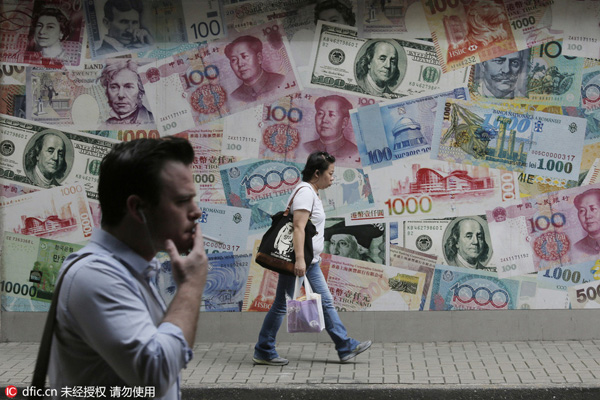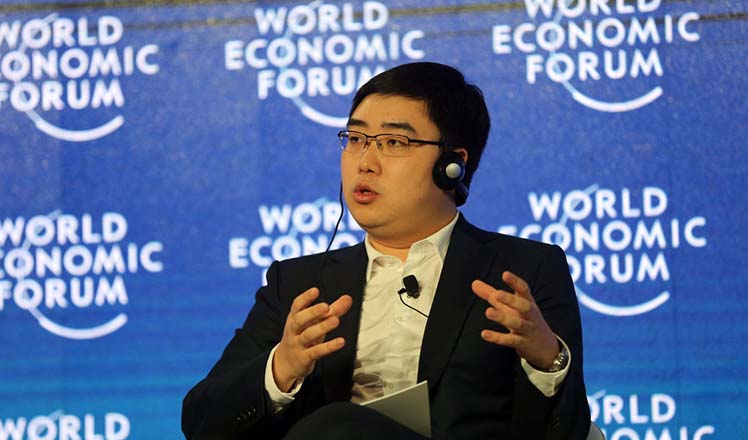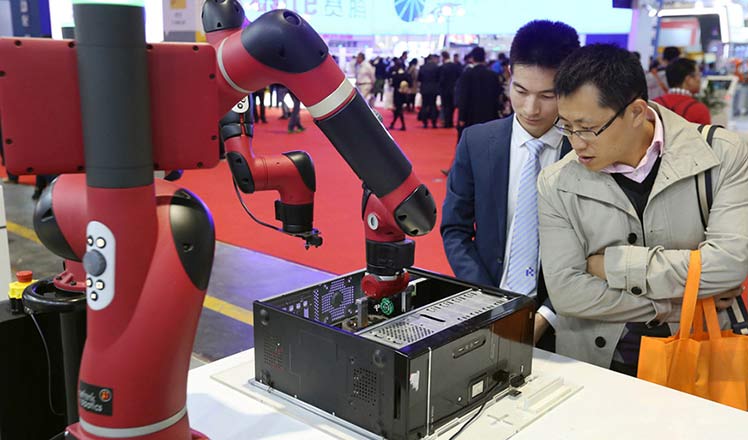Protectionism hindering input
Updated: 2016-11-04 08:40
(China Daily)
|
||||||||
 |
|
People walk past a money exchange decorated with different currencies in Hong Kong, June 27, 2016. [Photo/IC] |
Most economists would agree that foreign direct investment is a good thing; however, it is being hindered by protectionist measures. An obvious victim of this is China, with resistance to its investments increasing in the United States, Australia and recently in Europe.
As a result of tightened measures-that are claimed to be in the national interest-planned Chinese deals worth nearly $40 billion, or 14 percent of the total, have been scuppered since July 2015.
One possible reason for this Chinese investment-phobia is its explosive growth. Owing to the global economic slowdown, high asset prices and low-interest loans at home, China's outbound investment surged by 53.7 percent year-on-year in the first three quarters of this year.
Although it is not unreasonable for governments to review FDI in "sensitive sectors," some governments are claiming that an extensive range of sectors, from mining to agriculture, are "sensitive" and should be protected.
To stem this prevailing bias, specific actions are required.
For China, the government needs to accelerate reforms and opening-up, reduce red tape and improve access for foreign investment to create a fairer competition environment.
After almost four decades of reforms and opening-up, Chinese companies have become more market-oriented and profit-driven than many foreigners realize. But Chinese businesses that go global must ensure they abide by local laws and regulations and make their finances more transparent to gain the trust of foreign regulators.
For foreign regulators, they should extend to Chinese investors the same trust they give other foreign investors. They must also ensure that investment reviews are conducted transparently, and within a definite time and reference frame.
Communication and policy coordination should be enhanced to ensure countries safeguard their national interests without otherwise restricting their investment environment. Multilateral organizations, such as the G20, should reinforce policies that curb protectionism and promote global investment.
- Syrian army announces 'humanitarian pause' on Friday
- Park shuffles Cabinet, infuriates opposition
- Court to rule on whether London needs parliament to trigger EU exit
- Seeing country more polarized, American voters fear for future
- France to begin moving migrant minors from Calais
- China-Japan ties growing but unstable: Premier

 China's top 10 post-80s self-made billionaires
China's top 10 post-80s self-made billionaires
 Famous paintings recreated with chocolate
Famous paintings recreated with chocolate
 Looking for a ride?
Looking for a ride?
 Robots draw people to China International Industry Fair
Robots draw people to China International Industry Fair
 German international Miroslav Klose retires
German international Miroslav Klose retires
 Top 10 most influential Japanese cartoons in China
Top 10 most influential Japanese cartoons in China
 Opera performer who takes her shows to villages
Opera performer who takes her shows to villages
 13 most appealing cars in China in 2016
13 most appealing cars in China in 2016
Most Viewed
Editor's Picks

|

|

|

|

|

|
Today's Top News
US election rhetoric unlikely to foreshadow future US-China relations
'Zero Hunger Run' held in Rome
Trump outlines anti-terror plan, proposing extreme vetting for immigrants
Phelps puts spotlight on cupping
US launches airstrikes against IS targets in Libya's Sirte
Ministry slams US-Korean THAAD deployment
Two police officers shot at protest in Dallas
Abe's blame game reveals his policies failing to get results
US Weekly

|

|







